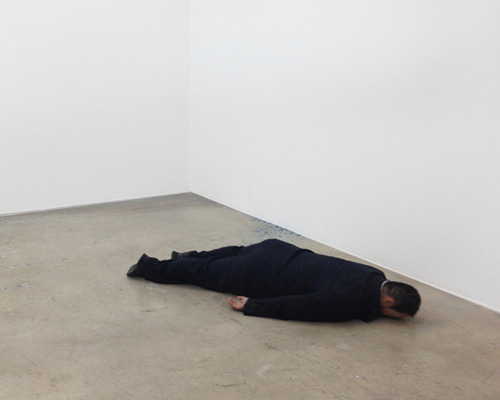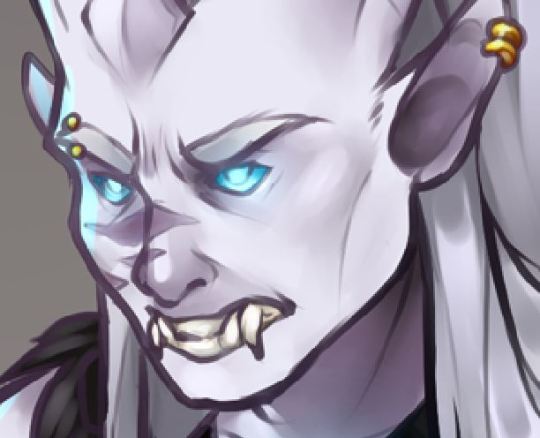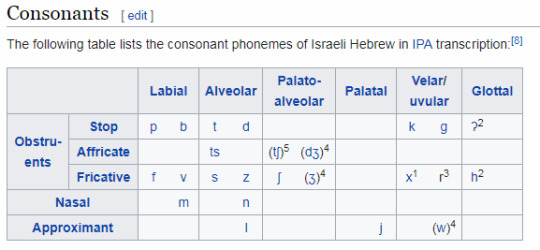#i need the transcript so i can work off the canon text w/o having to actively reference it. bc that just would not be efficient lol
Text

oh transcripts time
#speculation nation#itnl shit#the nebraska family shit doesnt matter. it's starting different than it did in the manga so i dont care#but where meryl and milly come in it's at least Partially just like canon#so im taking a transcript to know what to base it on#vash's responses are going to be different & that's going to change how the scene goes in the end#he's 10 years older after all & has been through a LOT. many things about how he reacts are going to be different.#but the others are nearly the exact same. just meryl's got a bit of a uh. thing. im going to be exploring.#turns out there r effects to showing up & giving a girl a meet-cute before fucking off again lmao#meryl: so uhh am i gonna see you around?#vash: Maybe :) (lying)#meryl is PISSED about Vash lying slkdjfsldkjf poor girl got her hopes up. and then she was confronted immediately with How He Is#im looking forward to writing them actually properly meeting. so the talking one to one will be different#on the bell tower tho it's gonna be nearly the same. and thus. transcript.#i get so annoyed by transcripts tho slkdfjsldf i had to take one for the first chapter of ITNL too.#just switching between tabs as i record word for word what's being said. soooo annoying.#but it'll help me later. i dont write well on my computer so i gotta write on my phone. for my concentration.#i need the transcript so i can work off the canon text w/o having to actively reference it. bc that just would not be efficient lol
0 notes
Text
Making the Draenei Language - Part 2
Part 1 | Part 3
First off, thanks to all the people who’ve expressed interest in this project! It makes me super happy that people think what I’m doing is interesting :D
Anyway, last time I went through and got a basic idea of the structure of the language, this time we’re diving into WHAT 👏 THAT👏 MOUTH👏 DO (and also spelling)

... and by that I of course mean phonetics (the study of the sounds produced in speech), phonology (the study of which sounds differentiate meaning) and phonotactics (how sounds are put together).
Phonetics and Phonology
Before we can even consider choosing some sounds for the language lets take a moment to consider those TEEF!

Taking my main boy Aegagrus (drawn by the wonderful @rurukatt, definitely didn’t put this in here cuz I still love this pic) as a model for my headcanon of Draenei teeth, we can see how those might get in the way of some sounds... but just like, specifically [f] and [v] (sounds in square brackets represent sounds not the letters, to hear what they sound like go here!) Both of those sounds involve making the same shape with your mouth - touching your bottom lip to your top teeth, but when you got some real long or pointy teeth, that might be a little bit hard to do! (or an accident waiting to happen if they’re sharp enough)
There’s only a small problem with this though, we have some canon words that use these sounds e.g “Pheta vi acahaci” - Light give me strength. I’m gonna explain this away by saying that we’re dealing with an approximate transcription using the Latin alphabet and English spelling conventions, which definitely wasn't designed to write down languages outside of well.. ideally Latin. I mean there’s a reason why English spelling is the way it is and one of those reasons comes down to using an alphabet too small for the number of sounds in the language.
Tangent aside, this means those two sounds are probably something like [ɸ] (again click here to hear these) for f and [β~ʋ] for v. These are sounds similar to [f] and [v] but they don’t involve teeth touching lips, check, and they’re probably what human transcribers misheard as [f] and [v].
Going through the other transcriptions in the data and making some guesses as to what they could be, we end up with something like this:

and huh that seems familiar... wait a second!

Yeah that’s just Hebrew without voiced fricatives, affricates or the sound [j] (the ‘y’ sound in English), and a bonus rhotic. I mean that’s probably to be expected as Draenei are heavily coded to be Jewish (a good post on that), so it makes sense that the sounds are also similar. It’s a shame to have such quote-unquote normal sounds (the th sound [θ] in ”thin” and “ether” is only in 4% of the worlds languages!) but that’s what you get when English devs make a game for a western audience, you get... ~~the fantasy accent~~ a.k.a discount slavic/germanic accents.
By the way [r] is the ‘trilled’ or ‘rolled’ r and [ɾ] is a ‘tapped’ r like in Spanish "por favor”.
Also, as another side note, this sound [ʔ] - the glottal stop is present in English too but you probably don’t recognise that it’s there. It’s the ‘-’ break in between “uh-oh”, and its also present in some dialects of American and British English where the [t] in words like “bottle” (bo’el) and “water” (wa’er) are replaced with the glottal stop.
Anyway, onto vowels! And yet again we come back to the problems of English spellings. English has approximately... too many vowels. In my dialect of Australian Standard English there’s up to 20 different vowel sounds depending on how you count. I mean all things considered we've done pretty well with the 5 vowel symbols we've got but good luck trying to accurately represent all this:

(not to mention the diphthongs) with just a e i o u. Most languages only have ~5 vowels so that’s about what I’m looking for. Taking into consideration all the English wackiness in spelling, we end up with what I think are 7 vowels (the pronunciation examples are definitely not gonna be spot on due to regional differences, learn the IPA its good):
[i] - meat, me, three, e-mail
[ʊ] - (short though) good, should, wood
[ʊ:] - (same as above but long)
[e] - bed, head, red
[ɔ~o] - (somewhere between the vowels in) bought, bot (those of you with the cot-caught merger are having real fun now)
[ɐ] - (this one is really only in Australian English) but, strut, bud
[ɐ:] - (same as above but long) bard, palm, start, hard
The two vowels with long forms are the interesting ones. All throughout the canon text we see ‘aa’ and ‘uu’ popping up again and again in things like “Maraad”, “Sayaad”, “Enkaat”, “Vaard”, “Tuurem” and “Krokuun”. Now this could just be stylistic choices made by the dev team to make the language seem more ~exotic~ but I think that it is definitely a case of phonemic vowel length. That’s where distinctions in words are made by elongating a vowel - something Latin had. But it’s not to be confused with what English calls ‘long vowels’, which are really the leftovers from actual vowel length after everyone in 1500 decided to pronounce every vowel just... completely different for some reason. The Great Vowel Shift is an interesting read). Anyway, it makes these double letters make sense, and is way more interesting than random double vowels. It’s also interesting that it’s not perfectly symmetric either, not all the vowels have this distinction, which is cool and perfectly natural for languages to do!
What is weird is that [ɔ~o] doesn’t have this feature, because in our vowel system, it’s almost directly in the middle of our two long/short vowels so it would probably assimilate and end up doing the same thing! So, going off that I’m going to simulate the beginning of language evolution, where the [ɔ~o] sounds is in the process of diverging into [o:] (oar, caught, thought) when it’s followed by ‘r, t, d, k or g’ and [ɔ] (lot, pot) everywhere else.
So, now we have the sounds for our language, how are they used? (dw hardcore conlanging people, I’ve worked out the rest of the allomorphy rules for the consonants but this post is already loooong)
Phonotactics
Phonotactics is largely about how syllables are formed and what sounds are allowed where. In an effort to try and not make the language *too* similar to English I want these rules to differ from English. Luckily, that’d really easy to do because yet again, English is a statistically weird language!
Syllables are divided into 3 parts - The onset, The nucleus and the Coda. For simplicities sake this corresponds to the consonants before the vowel, the vowel, and the consonants after the vowel. English lets wayyyyy too many consonants on either side ending up with abominations like “strengths” having 3 sounds before the nucleus and 3 after, or crimes against god like “twelfths” with 4 sounds after the coda.
Draenei on the other hand seems to be at most (C)(L)V(C). The brackets mean a sound is optional, C’s being consonants, L being ‘liquids’ like [l] and [r] (and [ʋ]) and V of course being vowels. Now going through the data (plus some creative input) we end up with some rules as to what can go where...

but we’ll leave the details of that for the final documentation and head onto...
Spelling! Everyone’s favourite...
There have been countless forum posts about how to pronounce ‘Draenei’ and even between developers at different panels there doesn't seem to be a consensus. This is probably due to the inconsistent spellings used throughout the lexicon so far - draenei and auchenai rhyme (I think) but they’re spelt with different endings!
With the language I have a few main goals
- Make it match as closely as reasonable with canon and common interpretations
- Have the spelling be consistent (same letters should always produce the same sound)
- In line with the first one, keep as much of the spelling the same as possible
- Make it as alien as possible within reason (sadly phonetics and phonology will not be the place to do that)
So coming to a word like “Draenei”, I have to break at least one thingon that list. Personally I want it to be pronounced [drɐ.naɪ] (druh-nai). So, to be consistent with the sounds from before it should be spelt ‘Dranai’ but that definitely won’t do, or I could keep the spelling and pronounce it literally [drɐ.e.ne.i] (druh-eh-ne-ey to give a rough guide for that), which is... equally bad.
The compromise I'm going with is keeping the spelling of Draenei but making the [aɪ] (ai) sound spelt ‘ei’ across the language. Meaning is gonna be Auchenei. Well, not really because there’s still a bunch of other spellings that need standardising.
the ‘ch’ in “Auchenei” is pronounced with a [k], so is the ‘c’ in “Dioniss aca”. Going through and standardising things like ‘ph’ -> ‘f’, ‘ch’ -> ‘k’ or ‘sh’ depending and rewriting vowels to match the phonology we end up with something that preserves most of the identity and look of the language but just makes more sense! Aukenei would then be the spelling I’m using in the lexicon, probably with a little note for the canon spelling.
So, from now on I'm going to be using the reformed spelling TM, which hopefully will mean anyone attempting to speak this language will have an easier time getting what I'm envisioning, cuz everything is now consistant.
That about does it for this post. Yet again if you made it all the way to the bottom, congratulations! Hopefully the next posts will be a bit more interesting (I’m so fucking pumped for how the culture will impact the grammar and vocabulary holy shit) but I gotta get this one out of the way.
Next time, we’ll be doing word-building - the morphology of the language, Thanks for reading!
#draenei#wow#World of Warcraft#lorecraft#headcanon#theorycrafting#language#conlang#linguistics#draenei language#not art
33 notes
·
View notes